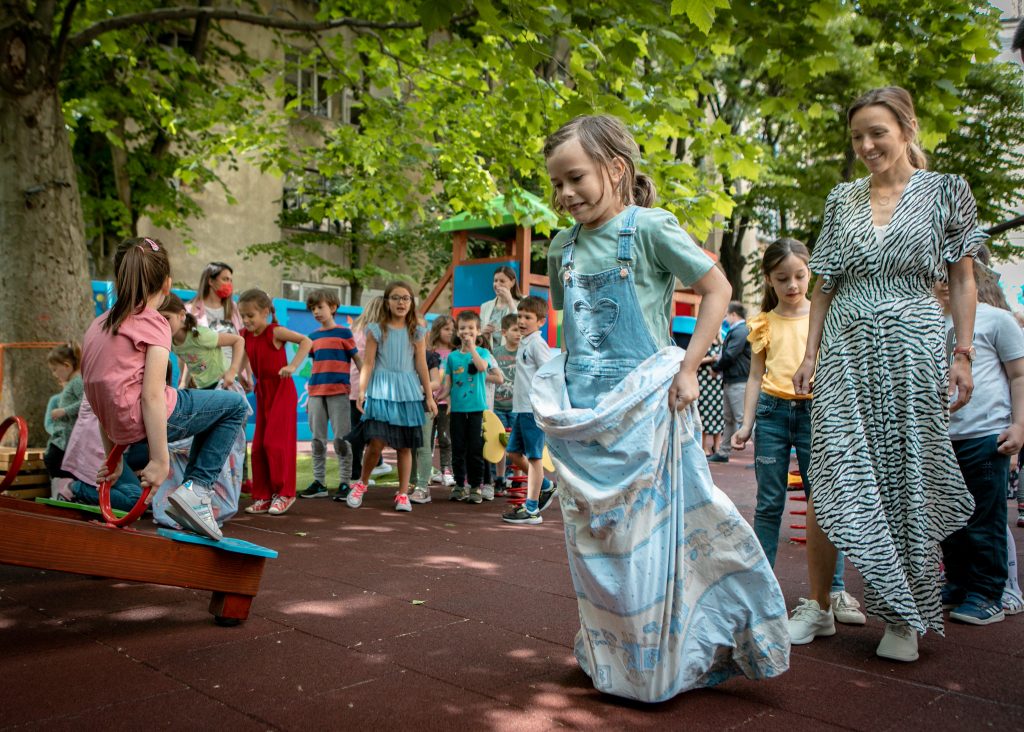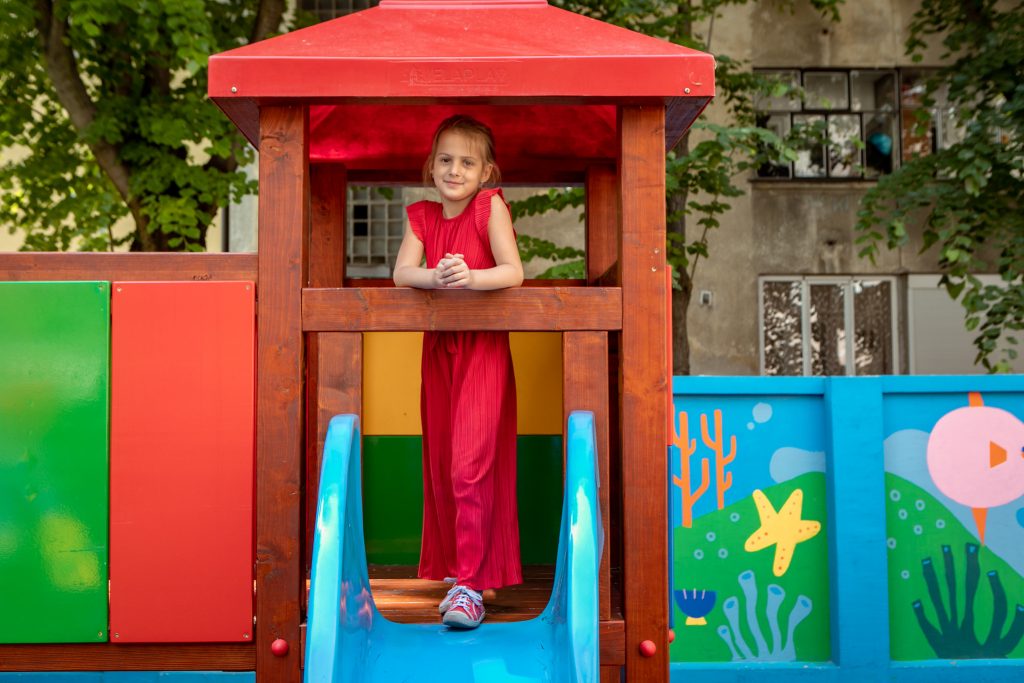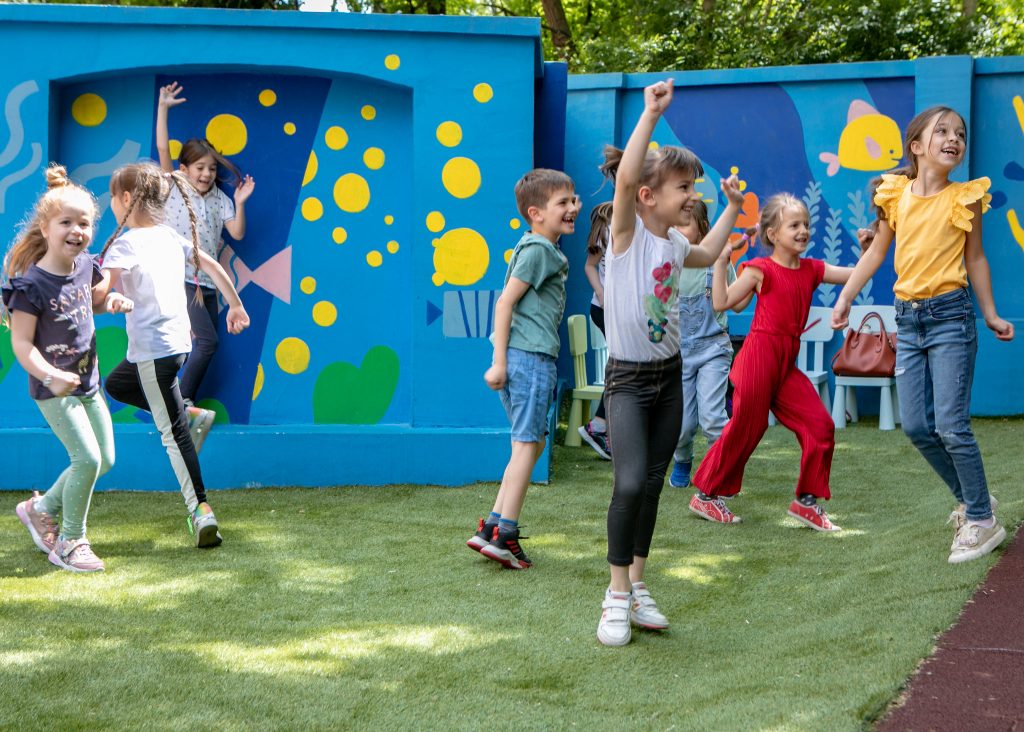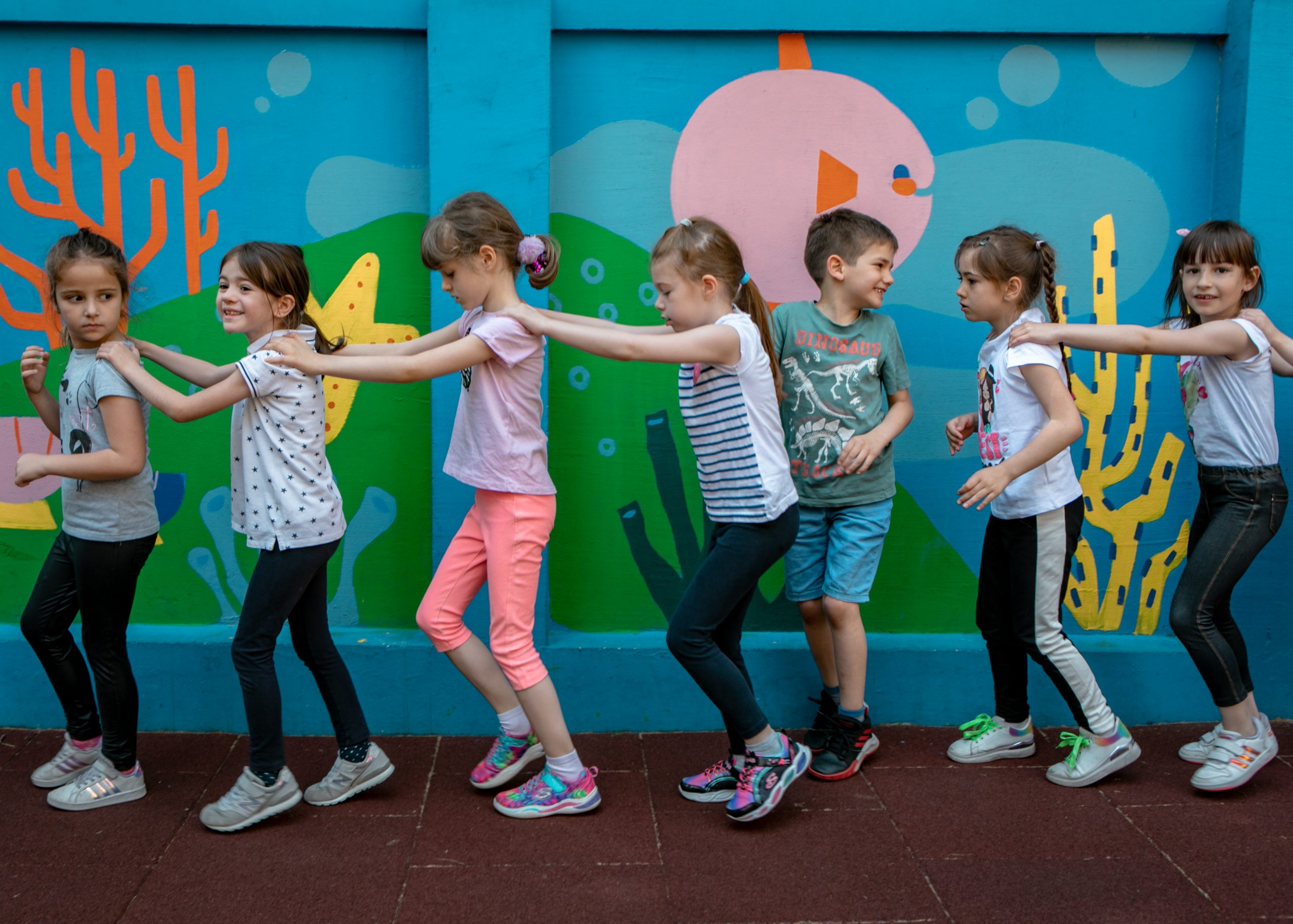Decades of recognizing child’s play as big, valuable and important are behind us, but have we and the children even participated in the same “game” this whole time?
Numerous researches show that children are motivated and dedicated through play, their memory is better and they have more stamina, they solve problems, find ways to cooperate, strengthen their body and spirit and develop neural networks. Nowadays, we have many products that should empower children to play in such a way – educational books, games and toys that “pack” numbers, letters, English words, seasons in a fun format.
We buy games and toys, specialized coloring books and stickers, take our children to courses, sports, and playrooms; however, it seems that the behaviors and results of our children leave us more and more perplexed in turn. When you ask teachers and educators, a large portion of them will tell you that they put in special effort so that they would do everything through play. Still, the academic achievements and competency of future generations are being questioned by the media.
Does that mean we have played around too much and that there is no learning during education due to all the playing?
If you ask children, I don’t believe they’d agree with that. Most children will clearly recognize and list what they learn in kindergarten and school, whereas there are not many of those who will recognize that any kind of game is desirable or even allowed. Decades of recognizing child’s play as big, valuable and important are behind us, but have we and the children even participated in the same “game” this whole time?

Please allow me to use some different decades in this story – those personal, of which I have a few up my sleeve. Ever since I was little, I’ve been making up stories. A rock, a toy bunny, a doll – at first, it didn’t matter: I’d take anything in my hands and play, imagine, talk to it. I dig through deserts, fly with dragons, hide in forests, search through store shelves, sell videotapes to demanding customers in video clubs. Each game was a story and each story was a game – that’s how I played.
I assume you expect me to say how I mastered verbally expressing myself thanks to such games, how I learned maps and flags, flora and fauna, how to write a movie name on a poster and how to add up prices in a store. You might get disappointed – I won’t say that I learned any of those. Of course, I’d know how to write the name of a movie and add up prices without using a calculator, but I don’t think that is the most valuable thing that I carry from my playing around. Had I not played such games, had I not made up such stories, had I not lived and breathed such worlds of my own, I wouldn’t have been who I am. I believe you have some games that created you.
You remember. And you feel. We all know how it feels when you create yourself through a game.
We were not made by a letter nor a number – no concrete piece of information we learned during play is itself the backbone of our personality. We develop skills and make neural networks more complex when we play, but we are not a set of skills nor a set of grades in a report card.

While exercising muscles, scoring goals and making baskets, chasing aliens and dragons, managing schools and restaurants, caring for babies, raising animals… somewhere along the way we discovered courage, uncovered the feeling caring for someone else gives us. We have discovered strength, joy, doubt, pain and fear. Somewhere along the way, the feeling of nobleness sneaked in, as well as the answer to the question of whether one can experience evil. We experienced the meaning of “a loved one” as opposed to “an enemy”, and what it feels like to personally be someone else’s “loved one” and “enemy”. We have learned that, ultimately, we are the ones who must make the choice.
To experience is not the same as knowing about something, neuroscience tells us. We do not learn from information and content, but from what we experience with our whole being. Learning does not mean knowing or not knowing something, but living – searching, reaching, answering, changing and being aware that you are changing the world with every action. Grades do not indicate what we have learned, the answer to the question of how we inhabit this piece of space and time we call our own does.
A special benefit of play is exactly the opportunity to experience different things you otherwise would not or could not have experienced. You can enter new, uncertain, even dangerous, territories you want to explore without fear, you can do things you normally cannot do and be everything wondered if you could be and whether you even want to be, but have not been yet.

This is the core of learning through play and also what we, adults, often do not recognize or supress.
When we try to “educate” children through play – namely, impose on their forms, content, and messages we consider important, all the while expecting clear and measurable results in other areas of their life, we cut away everything play represents. We do not want a creative and curious child – that is an uncertain and dangerous way to be. We want a child that does as told – we wish only the best for them, but do not even consider just how harmful this behavior can be for them.
Adults do have a task to complete, but that is not to “educate” children through play. Our task is to open ourselves to uncertainty and opportunities that will inspire both the children and us to play; to question different life situations, uncover different roles and actors, research different spaces and materials, and feel what else is there and what else we can realize within ourselves, this world and this life we are creating.
Neither play, nor studying, nor life come with warrantees. It is up to us to embrace that risk and to be playful in uncertainty together with our children.
















